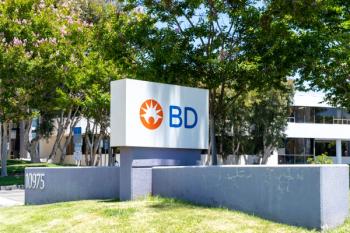
- Special Issues-09-02-2016
- Volume 29
- Issue 9
ChromSoc Activities: Academic Support
A look at some of the opportunities ChromSoc currently offers.
Karen Rome, Academic Support and Multimedia Secretary, The Chromatographic Society, UK.
A look at some of the opportunities ChromSoc currently offers.
Since 2010 The Chromatographic Society has provided over £34,000 in bursaries, which have enabled many students and scientists to deliver research projects, attend international symposia, and make important contributions by presenting their work. Collaboration is key to the success of science, research, and innovation and in our partnership with other societies, such as the British Mass Spectrometry Society (BMSS) and the Royal Society of Chemistry (RSC), we have provided funding to academics to deliver multidisciplinary research projects.
Involvement of scientists at the outset of their careers builds an appreciation of how robust chromatographic methods can improve business outcomes and ensures separation science maintains its leading role in global scientific research. As such, the academic support is very important to us. The following is an introduction to the bursaries and funding we provide. For more information or to apply please visit our website: www.chromsoc.com/academic-support.aspx
John Dolphin Fellowships
This fund is dedicated to the memory of John Dolphin (Figure 1), an eminent chromatographer (perhaps best known for Shandon Southern’s collaborations with John Knox’s Wolfson Chromatography Unit at Edinburgh University), founder of the Hypersil “Young Chromatographer of the Year” Award, and a long-serving member of our Executive Committee, including serving as Chairman (President in “new money”) from 1985–1988. Following John’s untimely death in 2009, The Chromatographic Society were honoured to receive a significant donation from his trust fund. In keeping with John’s outlook on separation science and development of young chromatographers, the John Dolphin Fellowship was set up to support PhD students who wish to present their work at international symposia.
Student and Industrial Bursaries
To support the development of up-and-coming separation scientists we provide a number of bursaries each year that enable students and scientists to attend a conference which benefits their research or studies. Student bursaries are available to UK fullâtime students or full-time students at a recognized UK university. Industrial bursaries are available to young and novice chromatographers working in small to medium UK-based pharmaceutical and biopharmaceutical companies and who find it difficult to get full financial support to attend scientific meetings.
Through the John Dolphin Fellowship the society has supported 19 students to attend 15 international symposia - here are some testimonials demonstrating the benefits.
Nicola Gray, LC–MS Technical Specialist, Shimadzu UK:
“Receiving a student bursary from the Chromatographic Society during my PhD enabled me to travel to the US to attend the HPLC 2012 conference, providing the opportunity to gain confidence in presenting my own research as a poster. The whole experience allowed me to broaden my chromatographic knowledge, develop essential networking skills, and build lasting connections with others in the field.”
James Heaton (Figure 2), Senior Analytical Scientist, Pfizer:
”ChromSoc bursaries played a massive role in allowing me to travel to several international conferences. The impact of attending these symposia have led to me finding opportunities both as a post-doctoral researcher and more recently employment at Pfizer. I’m very grateful indeed to ChromSoc for all of their support and hope that future bursary recipients make the most of receiving these career-enabling awards.”
Sophie Bailes, Analytical R&D Scientist, AstraZeneca:
“Attending HPLC 2013 gave me the opportunity to speak to leading experts in the field and listening to their presentations was a great boost to my understanding. The whole experience was extremely positive and I would highly recommend this to any PhD student.”
Joe Russell, QC Chemist, University of Cambridge:
“The bursary enabled me to present my research at HPLC 2015 Geneva, to discuss my results with leading researchers, and join a conga with Fabrice Gritti.”
Summer Studentships
- To provide opportunities to students and increase research and practical skills in separation science, we joined the BMSS summer studentship programme in 2010. Studentships receive funding based on their chromatography or mass spectrometry content, relevance to current topics, novelty, deliverables, and development of the student. Summer studentship projects have spanned many scientific disciplines and used a wide range of techniques. Topics have included:
- Development of a new extraction method for licit and illicit drugs for GC–MS analysis
- Development and optimization of a GC–MS method for the identification and profiling of new legal highs
- Separation of oligonucleotides using nanoLC–MS
- Development of nanoflowâcompatible chromatographic separations for longer, larger peptides generated by chemical cleavage
- GC–MS profiling of honeybee colony volatiles as an alternative indicator of honeybee diseases
- The use of ionic liquid columns in the separation of pesticides using GC–FID, GC–ECD, and GC–MS
- Metalloprotein profiling from dried blood spots by SEC–HPLC–ICPâMS, for clinical application in human health and disease
- Following continuous flow biotransformations by HPLC or GC
- Study of stationary phase retentivity as a variable in gradient LC peak capacity
- An evaluation into the critical factors that control the accuracy of gradient and isocratic reversed-phase LC retention time predictions from isocratic and gradient input data, respectively.
Luke Robinson (Figure 3), BSc BioPharmaceutical Sciences, University of Sunderland; 2016 summer studentship recipient:
“We had good hands-on experience of Agilent 1290 systems at Level 2. However, it was nothing like driving a system on a day-to-day basis. I might have expected this but I could never have imagined the other many benefits. For example, I have had to develop skills on presentation of data and have been able to appreciate the finer points of integration and other aspects of data analysis.”
Applications for summer studentships reopen in the first quarter of 2017.
ChromSoc Research Studentships
To expand on the opportunities provided by the summer studentships the society are developing a new research grant. This will be open to academics at recognized UK universities, who have a separation scienceârelated research project and will be available throughout the year.
Training
Separation science is a technique that underpins research across many scientific disciplines and having good practical skills ensures the right result. ChromSoc members receive a discount on a range of training courses.
Karen Rome is The Chromatographic Society’s Academic Support and Multimedia Secretary. She is also a member of The Chromatographic Society Executive Committee.
For more information on any of the academic support we provide or to apply please go to our website:
www.chromsoc.com/academic-support.aspx
If you require support for your research and would like further guidance please don’t hesitate to contact us:
chromsoc@meetingmakers.co.uk
Articles in this issue
over 9 years ago
ChromSoc: The First 60 Yearsover 9 years ago
Past Contributions and Future Visionsover 9 years ago
ChromSoc Activities: Medalsover 9 years ago
ChromSoc Activities: The Reid International Bioanalytical Forumover 9 years ago
The Future Revisitedover 9 years ago
Impact of Chromatography on Life and Societyover 9 years ago
High Impact Chromatographic Developments of the Past 60 YearsNewsletter
Join the global community of analytical scientists who trust LCGC for insights on the latest techniques, trends, and expert solutions in chromatography.




